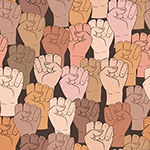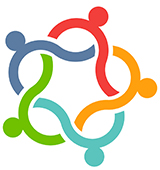
Social work supervision has long been a cornerstone in the professional development of social workers, playing a vital role in contributing to a competent and ethical workforce.

As social workers leverage the power of social media to market their services, it is important to consider key ethical guidance to prevent harm to consumers and uphold the integrity of the social work profession.

Engaging in ethical social work practice with gender-diverse clients and their families requires intentional consideration of the following eight tips for providing gender- affirming care.

The explosive growth of artificial intelligence (AI) has ignited both intrigue and trepidation. How can the social work profession harness the benefits of AI while balancing the risks it presents to ethical practice?
Read more about key ethical considerations related to the incorporation of AI in social work.

Are you a mid-career professional considering pressing pause or hitting the reset button on your professional endeavors? Read eight tips to guide you in the ethical closure of your social work practice.

Privacy and Confidentiality, 1.07, is one of the most cited areas of the NASW Code of Ethics. These eight considerations underscore key elements for honoring the sacred clinical relationship and communications between social workers and their clients.

These tips address ethical concerns and guidance for social workers who possess dual professional identities and/or seek to introduce new techniques or practices to their social work service delivery.

The recent high-profile deaths of Black people at the hands of the
police, in addition to reoccurring publicized examples of racism around
the country within our communities and within our profession, have
emboldened demands for massive social change. What action does the NASW
(2017) Code of Ethics require of social workers in the face of social
injustice, racism, and inequality?

The coronavirus (COVID-19) pandemic is rapidly transforming the way we go about daily life. What should social workers do to prepare for the impact of this pandemic?

The coronavirus (COVID-19) pandemic is rapidly transforming the way we go about daily life. What should social workers do to prepare for the impact of this pandemic?

The NASW Code of Ethics provides guidance to social
workers who encounter unethical conduct of colleagues. These tips
outline important steps to consider when confronted with unethical behavior
among colleagues.

Social work professionals change employment for many reasons, including to pursue opportunities for professional growth, to start a private practice, due to a poor fit, or to retire. The following eight tips support ethical decisions in planning for a change of employment.

Ethical social work practice in school systems involves a myriad of complex variables
that demand a sound knowledge of the NASW Code of Ethics, along with legal,
statutory, and other requirements. The following tips address important
considerations necessary to arrive at solid ethical outcomes in school
settings.

Social workers should remember that the NASW Code of Ethics standards apply online as they do in the actual work environment.

Social workers sometimes need to consider terminating services. In such circumstances, social workers should carefully adhere to the profession’s ethical standards. - Frederick Reamer, PhD, Social Work Today

There is a persistent need for social workers to educate
themselves about how to advance ethical treatment and practices when working with
people and communities affected by HIV/AIDS.
These tips describe ethical considerations for social workers and provide guidance and resources to assist with promoting ethical practice when working with HIV/AIDS-affected people and communities.

Social workers often face ethical dilemmas when negotiating the dynamics of working with couples, including: Who is considered the client? May I see an individual member of a couple separately? What if the attorney of one member of the couple subpoenas the record? If one member of a couple opts to terminate services, may I continue to see the other?

Social workers should not allow their own personal problems, psychosocial distress, legal problems, substance abuse, or mental health difficulties to interfere with their professional judgment and performance or to jeopardize the best interests of people for whom they have a professional responsibility.